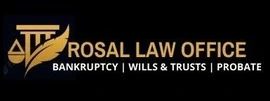Filing for bankruptcy is often seen as a last resort for those who are drowning in debt and unable to meet their financial obligations. Chapter 7 bankruptcy provides a way for individuals to get a fresh start by eliminating most of their unsecured debts. However, one major hurdle for many people is the cost associated with filing for bankruptcy. If you are struggling financially, you may be wondering how to file Chapter 7 with no money. This guide will walk you through the process and explore ways to file even when you have limited funds.
Ways For Filing for Chapter 7 With No Money
Filing for bankruptcy comes with costs, including court filing fees, attorney fees, and administrative expenses. However, there are several ways to file Chapter 7 even if you don’t have the money upfront.
1. Apply for a Fee Waiver
One of the first steps to filing for Chapter 7 with no money is to apply for a fee waiver. The U.S. Bankruptcy Court charges a filing fee of $338 (as of 2024), but if you meet certain income requirements, you may be eligible to have this fee waived.
To qualify for a fee waiver, your income must be below 150% of the federal poverty guidelines. You must also show that you are unable to afford the fee in installments. If approved, you won’t have to pay anything to file your case.
2. Request to Pay Filing Fees in Installments
If you don’t qualify for a fee waiver but cannot afford the full filing fee upfront, you can request to pay it in installments. The court usually allows payments to be made in up to four installments over a period of 120 days. This option provides some financial relief and allows you to begin the bankruptcy process while managing the cost.
3. Seek Free or Low-Cost Legal Help
A bankruptcy attorney can be expensive, but there are ways to obtain legal assistance without paying high fees:
- Legal Aid Organizations – Many nonprofit legal aid organizations provide free or low-cost legal assistance to individuals who qualify based on income.
- Pro Bono Services – Some bankruptcy attorneys offer pro bono (free) legal representation for those in financial hardship. You can check with local bar associations or online directories for attorneys offering such services.
- Law School Clinics – Some law schools have bankruptcy clinics where law students, under supervision, assist with filing bankruptcy cases for free or at a reduced cost.
- Self-Representation (Pro Se Filing) – You have the right to file for Chapter 7 bankruptcy without an attorney. However, this can be complex and requires careful attention to detail to avoid mistakes that could lead to your case being dismissed.
4. Use a Free Credit Counseling Agency
Before filing for bankruptcy, you must complete a mandatory credit counseling course from an approved provider. Some nonprofit organizations offer free or low-cost credit counseling services, which can help you fulfill this requirement without adding to your financial burden.
Steps to File Chapter 7 Bankruptcy With No Money
If you have determined that Chapter 7 is the best option for you, here are the steps you need to follow to file without money:
Step1: Gather Your Financial Information – Collect details about your income, debts, expenses, and assets.
Step2: Complete Credit Counseling – Find an approved agency offering free or low-cost credit counseling and complete the required course.
Step3: Prepare Bankruptcy Forms – Obtain and fill out the necessary bankruptcy forms, which are available for free on the U.S. Court’s website.
Step4: File Your Case – Submit your completed forms to the bankruptcy court. If you cannot pay the filing fee, submit a fee waiver application or an installment payment request.
Step5: Attend the 341 Meeting – After filing, you must attend a meeting with the bankruptcy trustee, known as the 341 meeting, where you will answer questions about your finances.
Step6: Complete Debtor Education Course – This second mandatory course must be completed before your debts can be discharged.
Step7: Receive Your Discharge – If all requirements are met, the court will issue a discharge order, eliminating your eligible debts.
Risks of Filing Chapter 7 Without an Attorney
Although it is possible to file Chapter 7 without an attorney, there are risks involved. Bankruptcy laws are complex, and a single mistake can result in delays or even dismissal of your case. Here are some common pitfalls:
- Failure to Disclose Assets and Debts – Omitting any financial information can lead to penalties or case dismissal.
- Filing the Wrong Forms – Bankruptcy paperwork is extensive, and errors can be costly.
- Not Understanding Exemptions – You may unnecessarily lose assets if you don’t properly claim exemptions.
- Inability to Handle Trustee and Creditor Questions – A bankruptcy attorney can help you navigate interactions with the trustee and creditors.
Filing for Chapter 7 bankruptcy with no money can be challenging, but it is possible with the right approach. By applying for a fee waiver, seeking pro bono legal assistance, and utilizing free credit counseling services, you can navigate the process even with limited financial resources. However, considering the complexities involved, consulting a chapter 7 bankruptcy lawyer can significantly improve your chances of a successful filing. Whether you proceed on your own or seek legal help, understanding your rights and options is key to achieving financial relief and a fresh start.





